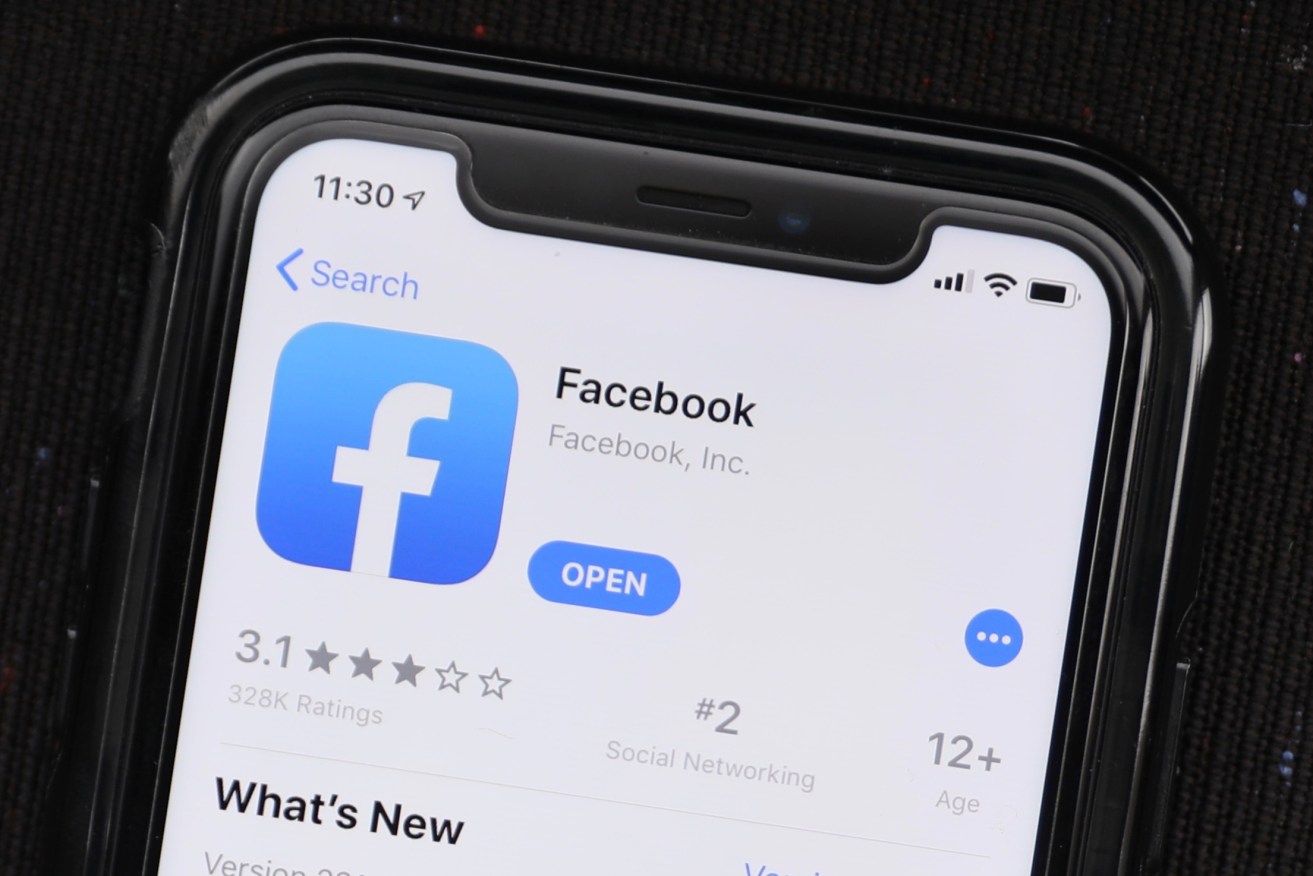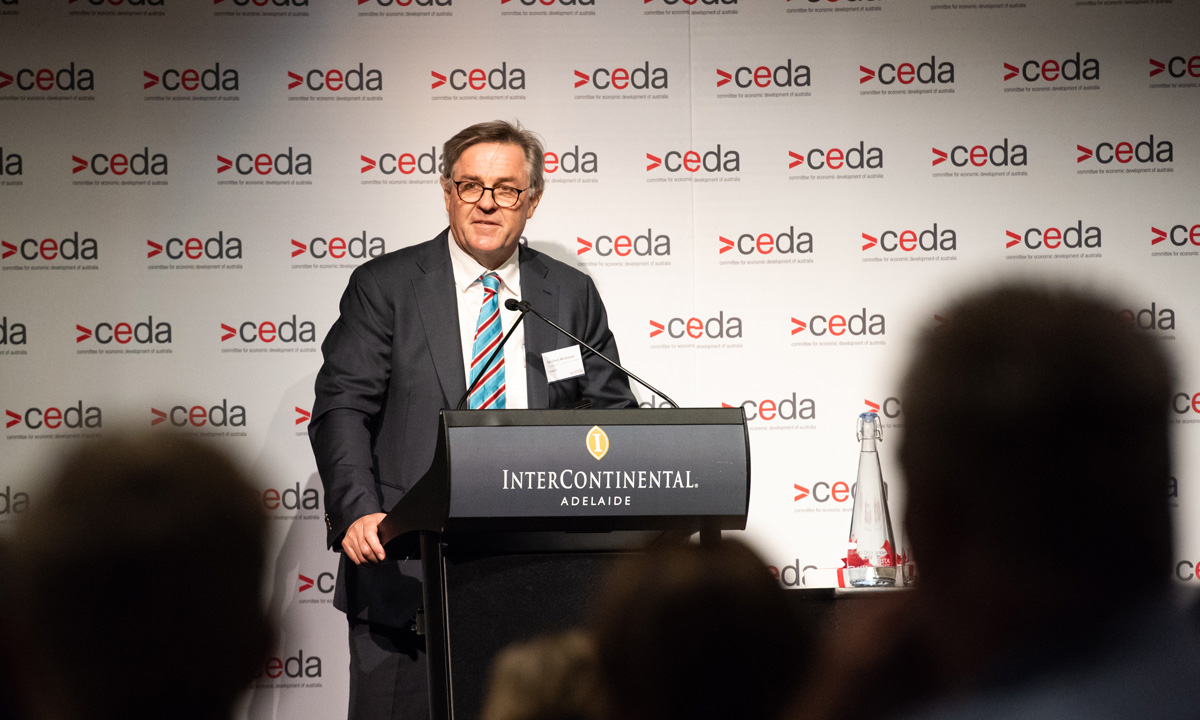SA Health CEO suggests social media tracking for illness prevention
The head of SA Health has suggested tracking what individuals put on social media to identify, predict and prevent their health problems.


Photo: AP / Amr Alfiky
Speaking at a lunchtime policy forum yesterday, Dr Chris McGowan suggested mimicking the data analytics tactics advertisers use to track people across social media to discern individuals’ healthcare needs.
He also argued South Australia’s healthcare system is stuck in a “1960s” funding model.
“My phone knows when I’m a little bit interested in a new wheel for my tractor because I’ll search it – and all these things for tractors will start coming up left, right and centre,” he said during a panel discussion at the CEDA Health Review event at the Intercontinental Hotel.
“And why are (sic) we doing that in health?”
He argued that: “We need to start using data to start driving, predicting … to pick up the patients who are really at risk and having services, optimise around those patient groups.”
InDaily contacted SA Health to clarify whether McGowan was advocating using individuals’ social media profiles to track their health conditions directly, or whether he was suggesting using online analytics techniques to track some other kind of consumer health data.
McGowan responded in a statement this morning, saying that “innovation remains key to meeting the challenges of the future” and:
“I have always had an interest in exploring data and its connection with digital marketing to more accurately promote health messaging to those who would benefit most from it, however, this is not something that SA Health is currently undertaking.”
Social media offers a health data trove
Health informatician and University of Melbourne researcher Dr Mark Merolli, a member of the Health Informatics Society of Australia, said social media holds great potential for preventative healthcare.
“In no uncertain terms, social media does offer a trove of data – health and otherwise,” he said.
“It offers quite significant potential … in terms of prevention.”
He said software existed that could detect melanoma on the skin of people who had posted photographs of themselves online, and that could identify mental illness from social media posts.
Health data is probably the most sensitive data we have … how many of us actually read the privacy policies?
But he cautioned there were also ethical questions about using the data people publish online.
“Health data is probably the most sensitive data we have,” he said.
“Once you supply that data (online) it’s pretty freely available.
“(However) how many of us actually read the privacy policies?”
He added: “It’s something that from an ethics perspective we’re still playing catchup on.”
SA Health building statewide data analytics plan
The SA Health CEO was a last-minute fill-in for Health Minister Stephen Wade, who was due to deliver the keynote speech at yesterday’s CEDA event but was unavailable.
Delivering a modified version of the speech, McGowan spruiked the merits of the department’s internal Commission of Excellence and Innovation in health, which was developing a data and analytics plan for South Australia.
“The plan will provide a three-year and ten-year roadmap aimed at making South Australia a leader in the use of data to improve care,” he told the gathering.

SA Health CEO Dr Chris McGowan addressed a the CEDA Health Review yesterday. Photo: CEDA
“The Commission will partner with Health Translation SA to establish a Clinical Informatics Hub in South Australia.”
The direction of the Data and Analytics Plan is unclear.
It is referenced only once on SA Health’s website – within a report on the Commission’s vision and purpose, which offers no detail.
Health funding stuck in “1960s business model”
McGowan also argued the way South Australia’s healthcare system was funded was outdated.
“While the treatments and technology have really gone forward, the business model is still a 1960s, 1970s business model,” he said.
“So the thing that really has to change I think is the funding model.
“Bob Evans is a very famous Canadian health economist who said when you put economic incentives in place in health don’t worry about whether they’ll follow them, just worry about the unintended consequences.”
He argued that the “ten minute business model” of general practitioners failed to adequately serve diverse patient groups.
“I think we need to really get realistic about saying fee-for-service general practice is yesterday’s model,” he told the audience.
“The problem is the first patient (is a) complicated, co-morbid patient … with a drug and alcohol problem. The next person is a refugee who’s just arrived with experience of trauma and doesn’t speak a word of English. The next person is probably six months away from dying of ischemic heart disease.
“And there’s no business model that you can wrap around and optimise around those patient groups.”
Want to comment?
Send us an email, making it clear which story you’re commenting on and including your full name (required for publication) and phone number (only for verification purposes). Please put “Reader views” in the subject.
We’ll publish the best comments in a regular “Reader Views” post. Your comments can be brief, or we can accept up to 350 words, or thereabouts.
InDaily has changed the way we receive comments. Go here for an explanation.




